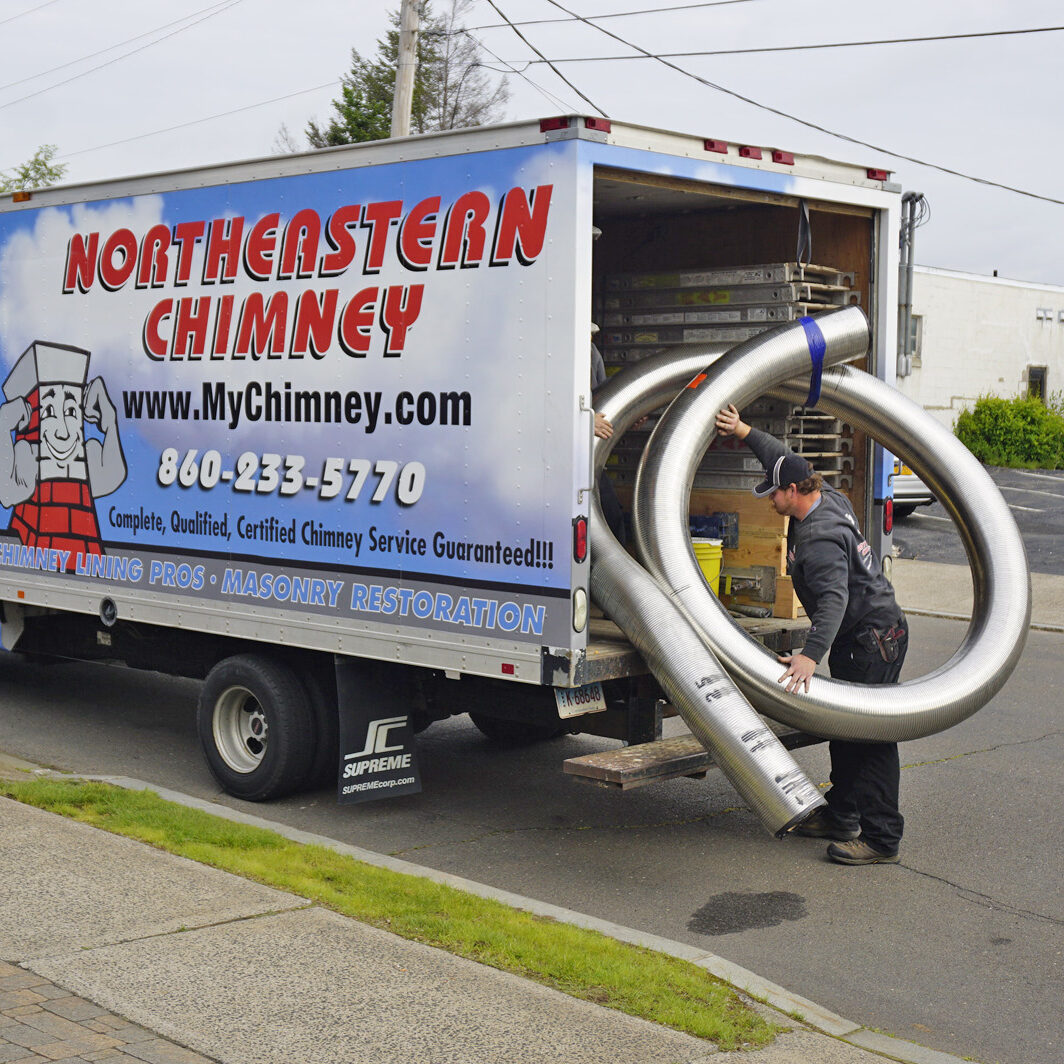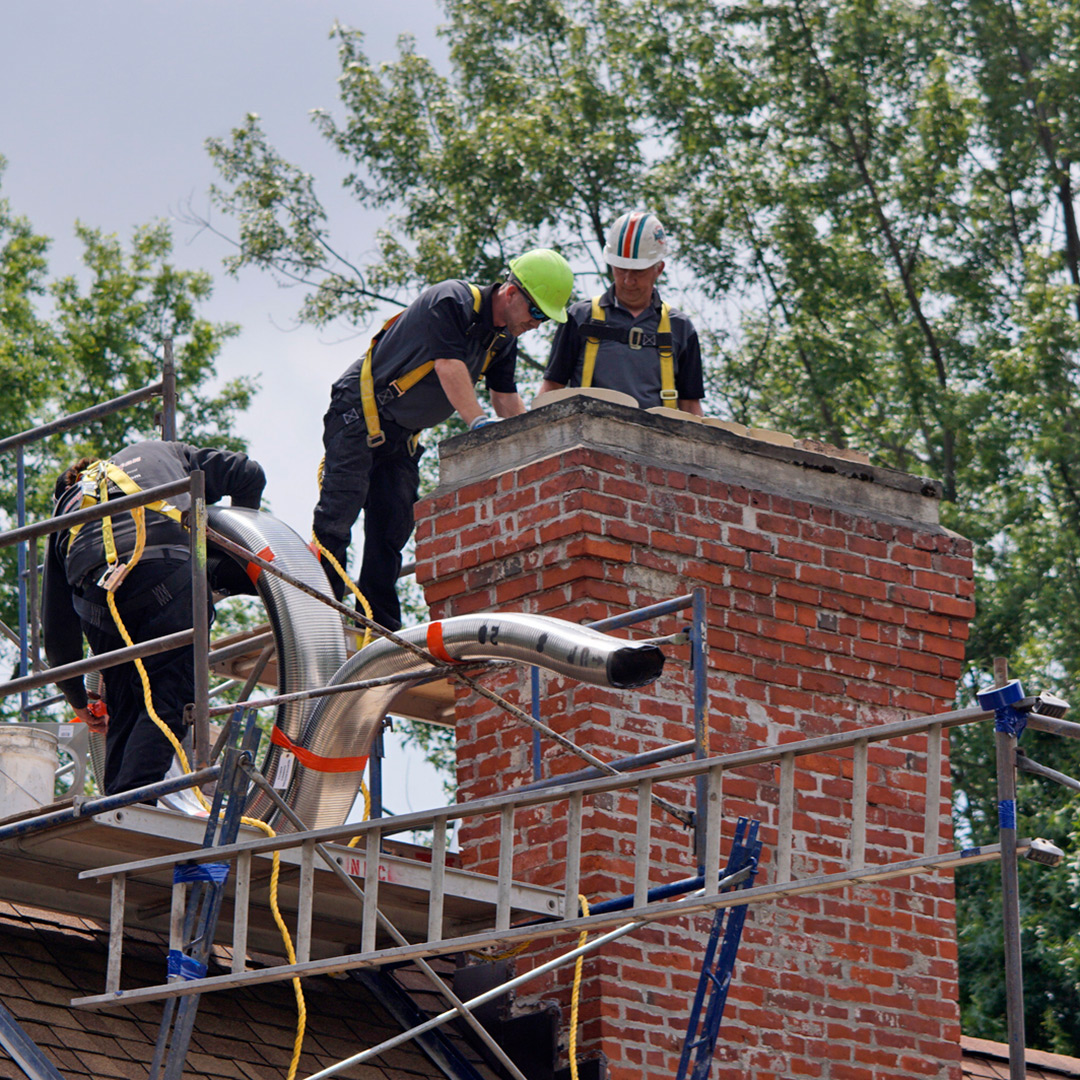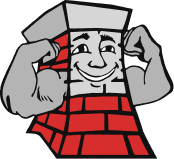The Benefits of a Well-Insulated Chimney in Winter
Homeowners in Hartford, Connecticut, and surrounding townships know winters can be harsh. With average temperatures dropping below freezing for several months a year, it’s important to ensure your home is well-insulated to keep energy costs down and maintain a comfortable indoor temperature in the winter. However, many overlook the benefits of a well-insulated chimney in winter.
 Problems of a Non-Insulated Chimney
Problems of a Non-Insulated Chimney
If your chimney is lined with clay tiles, the most common liner, it is probably non-insulated. In addition to an increased risk of fire and energy waste, a non-insulated chimney can lead to several other problems, such as:
Drafty fireplace: Drafts from a leaky chimney can make your home feel colder and increase your heating costs. You will need more fuel to stay warm, and your living space will cool down faster after extinguishing the flames.
Creosote buildup: Creosote is a flammable byproduct of wood and, to some extent, gas combustion. It builds up inside your chimney, liner, damper, and other components, increasing the fire risk and exposure to toxic carbon monoxide exhaust.
Moisture damage: Moisture from rain and snow can seep into a poorly insulated chimney, damaging your masonry and roofing materials. It will also accelerate the deterioration of decaying mortar joints.
Insulated vs. Non-Insulated Chimney Liners
When choosing a chimney liner, there are several factors to consider, such as the type of fuel and appliance you are using, the size of your flue, and your budget. Another critical decision is to choose an insulated or non-insulated chimney liner. Regardless of the liner you select, it is vital to have it installed by a chimney professional to ensure it is installed correctly and is the right size for your chimney.
Insulated chimney liners are typically made of stainless steel and have a layer of insulation around them. The insulation helps to keep the flue gases hot as they travel up the chimney, which improves efficiency and reduces the risk of fires and exposure to harmful contaminants. Non-insulated chimney liners are usually made of clay tiles. Since they do not have insulation, the flue gases cool down as they travel up the chimney. It reduces overall heating efficiency, increasing heating costs.
Additional Benefits
Insulated chimney liners are generally the best option for most homeowners in New Britain, Simsbury, and central CT. They offer several advantages over non-insulated chimney liners, including improved efficiency, increased safety, and a longer lifespan. Other valuable benefits include:
Improved energy efficiency: A well-insulated chimney will help to keep your home warmer in the winter, which can lead to lower heating costs.
Reduced risk of chimney fires: Creosote is less likely to build up in a well-insulated chimney, which can reduce your risk of a chimney fire.
Reduced moisture damage: A well-insulated chimney will help to keep moisture out, which can protect your masonry and roofing materials from damage.
Increased comfort: A well-insulated chimney will help to keep your home warmer and more comfortable in the winter.

Improves Indoor Air Quality
In addition, a well-insulated chimney can also help to improve indoor air quality. When your chimney is insulated, it helps to prevent smoke and other pollutants from entering your home. It can lead to improved health and well-being for you and your family. So, to check whether your chimney is well-insulated, call the certified professionals at Northeastern Chimney. We will assess the condition of your chimney, vents, and heating appliance and recommend the insulation that will perform the best for your chimney.
Insulated Chimney Liners in Central Connecticut
Northeastern Chimney LLC is your premier CSIA-certified provider of chimney inspections, insulated and non-insulated liner installations and repairs, and rebuilding in Avon, Farmington, West Hartford, and surrounding central Connecticut townships. Call (860) 233-5770 or contact us online to consult with a Certified Chimney Sweep®.


